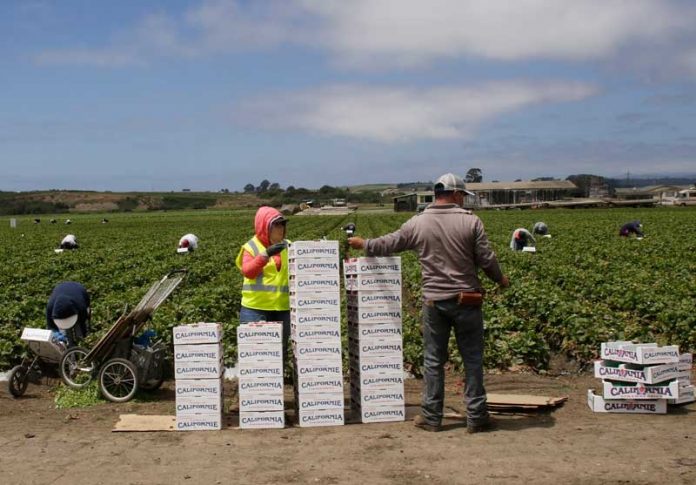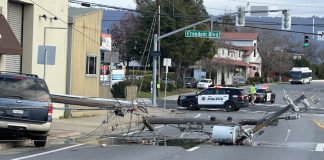WATSONVILLE—The County of Santa Cruz announced Saturday that it has distributed thousands of N-95 masks—and plans to hand out thousands more—to farms across the Pajaro Valley to help protect farmworkers from hazardous smoke currently polluting the air.
Several fires across the Central Coast and greater Bay Area have flooded the skies with smoke, pushing the air quality into the “unhealthy” and “hazardous” range of the Air Quality Index (AQI).
County Agricultural Commissioner Juan Hidalgo said his office issued 15,000 N-95 masks during the initial phases of the CZU August Lightning Complex fires, which have scorched 78,000 acres as of Monday. The County ordered another 27,000 masks and is currently distributing those, Hidalgo said.
The masks come thanks to a partnership between the California Department of Food and Agriculture and the California Governor’s Office of Emergency Services, Hidalgo said.
“Despite a scarcity of mask supplies due to the ongoing Covid-19 pandemic, we sought and secured additional resources in response to the fires to help protect our essential workers from air pollution,” Hidalgo said.
The AQI on Monday morning was deemed “good” throughout most of the Monterey Bay Area, according to AirNow. Those somewhat clear skies were a reprieve for many farmworkers in the Salinas and Pajaro valleys, who have continued to work as the AQI has fluctuated since the fires began on Aug. 16.
Growers are required to provide protective face coverings to laborers once the AQI reaches 151, or the “unhealthy” range.
The AQI reached the “very unhealthy” and “hazardous” range Friday as the CZU fires and River and Carmel fires raged in Santa Cruz and Monterey counties, respectively.
The Monterey Bay Area Resources District on Friday advised people with heart or lung disease (including asthma and chronic obstructive pulmonary disease-COPD), older adults and children to stay indoors. MBARD also said that research indicates that pregnant women, newborns and people with certain health conditions, such as obesity or diabetes, also may be more susceptible to particulate matter-related effects
“Please stay indoors in a room or building with filtered air and reduce your activity levels,” the agency said in a press release. “These are the best ways to reduce the amount of particle pollution you breathe into your lungs.”
Air quality can change quickly as fires progress and wind changes direction. For real-time air quality reports go to air.mbard.org/ and cdc.gov/features/wildfires.
“Our agricultural workers are at greater risk of smoke exposure as they often have no option but to work outdoors,” said Tamara Vides, Watsonville Deputy City Manager. “We are pleased to support the County and work with them in assuring the health of our farmworkers is protected.”












